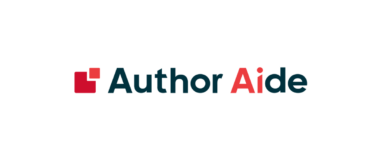AI in assessment: how artificial intelligence injects real wonder into learning experiences
Mark Lynch, Learnosity co-founder and Chief Strategy Officer, on AI and its transformative effect on the assessment experience—its rapid advancement, impact on teacher productivity, and capacity to promote more equitable education.
Q. Now that you’ve had a while to play with AI models and get to see what they can do, what surprised you about the experience?
ML: The single biggest surprise for me was this: the speed of improvement. Multiple times over the past year, I’ve returned from a vacation to find significant advancements in the models.
And there’s also surprisingly healthy competition in the field. While most people are familiar with OpenAI’s ChatGPT, Anthropic’s Claude models are comparable and even superior in some scenarios. Additionally, Meta’s Llama and Mistral’s models are also highly impressive.
Q. The edtech world can’t stop talking about AI. Where do you think we are in the hype cycle?
ML: That varies depending on the use cases. In some of the early use cases, like assistive coding, I believe we’re on the Slope of Enlightenment, and it’s going to continue improving productivity.
From an education perspective, I think we’ve passed the Peak of Inflated Expectations. While a segment of the industry may feel like we’re in the Trough of Disillusionment, with many focusing on the negatives, I believe we’re at the start of the Slope of Enlightenment. LLMs have unlocked new possibilities, enabling many teams to solve learning problems by building products which were simply not feasible only 18 months ago.
We’re living through a really exciting point in history, comparable to the release of the iPhone 15 years ago and the dawn of the mainstream Internet 30 years ago.

Q. With a projected gap of 44 million teachers worldwide by 2030, how do you think AI-powered tools could help close that gap by making teachers’ jobs easier?
ML: This is why AI is a real win for education: it can seriously boost teacher productivity by handling time-consuming tasks, like providing contextual feedback on essays or assisting in the creation of lesson plans and high-quality grading rubrics.
Take my sister, for example, who’s a professor at a university in the UK. At the end of every semester, she’s slammed with grading over a hundred essays, often having to do it during holiday periods. The university says each essay should take 20 minutes to grade, but in reality, it’s more like 30 minutes each. Once you do the math, you can understand her pain. It’s a tough grind that shows just how much educators like her have on their plate, and that’s where AI could step in to dramatically lighten the load.
Feedback is crucial for effective learning, it’s one of the most valuable tools we have, but writing detailed and personalized comments for each assessment taker isn’t always possible. AI is set to help learners by giving them more high-quality feedback in a more timely manner. As a result, learning outcomes will improve and teachers will be happier because they’ll have more time for the important stuff. This level of transformative impact is what we’re aiming to achieve with our product Feedback Aide.
Q. In what ways can AI assist in creating more inclusive, equitable educational environments for learners with diverse learning needs and backgrounds?
ML: Leveraging AI offers significant efficiencies in both creating and reviewing content. AI tools like Author Aide cut down the time needed to produce content, which means educators can now create content tailored not only for mainstream learners but also for smaller audiences—meaning every learner’s needs can be met. On top of that, AI will also help review and improve existing content, instantly spotting problematic areas and generating suggestions to make your assessments more inclusive, equitable, and diverse.
Q. One major challenge in education right now is disengagement. How could AI give learners a more engaging experience?
ML: One of the magical aspects of AI is its potential to boost engagement by accelerating the performance of tasks. AI can provide almost instant feedback, which helps involve learners in the learning process more effectively. In many cases, conversational interfaces stimulate increased user interaction, allowing students to have a conversation with the AI to find answers. Personally, I’ve found conversing with an AI chatbot incredibly valuable at work when learning new technologies—it really helps me get to grips with things more quickly.
Q. As a tech whiz, you must have pondered the future of this technology. Any big predictions for how the learning experience might look in 10 years’ time?
ML: To someone in the present day, the classrooms of the 2030s will probably look like something out of a sci-fi movie. As fun as it is to think about, right now it’s impossible to know how much AI will transform learning and the world at large in the years to come—the possibilities are limitless.
That said, I can make a few predictions with confidence. AI will likely have a disproportionately positive impact on learners with disabilities, much like computers, phones, and the Internet have enabled millions to pursue careers and lead more fulfilling lives.
And AI’s impact will obviously go beyond learning. For most people, AI promises increased productivity and a better quality of life. New life-saving medical treatments and technologies will also emerge as a consequence.
We’ve seen paradigm shifts like this before. Looking back at recent technological milestones like the Internet and the iPhone, they’ve become ubiquitous in the decade or so since their introduction. In 10 years, AI will similarly become just a normal part of everyday life.
While there will be some negative use cases, it’s my belief that AI will be a far greater force for good and a huge net positive for the modern world.
Want to learn more about Learnosity’s latest innovations in assessment? Check out the on-demand webinar below with CEO Gavin Cooney and Product Manager Monet Slinowsky for a deep-dive into our AI-assisted grading & feedback tool, Feedback Aide 👇

Photo by Patricia Prudente on Unsplash












